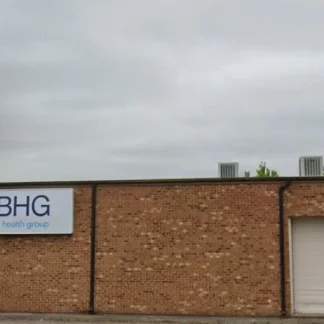T W Neumann and Associates
T W Neumann and Associates is a private rehab located in Portsmouth, Virginia. T...
The Behavioral Health Group – Chesapeake Treatment Center can be found in Chesapeake, Virginia. This addiction treatment center focuses on providing substance abuse treatment through an integration of outcomes-based medicine, medication-assisted treatment, and outpatient care. Those attending this rehab center will receive case management services, care coordination, labs, and counseling.
This addiction treatment center provides a unique, dynamic, flexible, patient-centric treatment care model. This model is utilized in the treatment programs offered at this rehab center. To learn more about this operationalized approach and integrated psychological and physiological treatment, read below:
The Behavioral Health Group can administer FA-approved medications and prescribe these medicines in certain instances where drug treatment is necessary. However, this does not mean that this rehab center is ‘medication only.’
The outpatient opioid program (OP) offered at this rehab center helps patients recover from drug addiction and substance abuse through individual and group counseling. In addition, this program provides educational resources and drug services that ensure clients have every opportunity at successful sobriety.
Contact us for more information: (757) 673-3644

Connect with Behavioral Health Group - Chesapeake Treatment Cente by calling their admissions team directly.
(757) 673-3644 Website Get DirectionsThe Substance Abuse and Mental Health Services Administration (SAMHSA) is a branch of the U.S. Department of Health and Human Services. Established in 1992 by congress, SAMHSA's mission is to reduce the impact of substance abuse and mental illness on American's communities.
SAMHSA Listed: Yes
Cognitive Behavioral Therapy (CBT) is a therapy modality that focuses on the relationship between one's thoughts, feelings, and behaviors. It is used to establish and allow for healthy responses to thoughts and feelings (instead of unhealthy responses, like using drugs or alcohol). CBT has been proven effective for recovering addicts of all kinds, and is used to strengthen a patient's own self-awareness and ability to self-regulate. CBT allows individuals to monitor their own emotional state, become more adept at communicating with others, and manage stress without needing to engage in substance abuse.
Dialectical Behavior Therapy (DBT) is a modified form of Cognitive Behavioral Therapy (CBT), a treatment designed to help people understand and ultimately affect the relationship between their thoughts, feelings, and behaviors. DBT is often used for individuals who struggle with self-harm behaviors, such as self-mutilation (cutting) and suicidal thoughts, urges, or attempts. It has been proven clinically effective for those who struggle with out-of-control emotions and mental health illnesses like Borderline Personality Disorder.
Motivational Interviewing (MI) is a clinical approach to helping people with substance abuse issues and other conditions shift behavior in positive ways. It is more goal-oriented than traditional psychotherapy, as MI counselors directly attempt to get clients to consider making behavioral change (rather than wait for them to come to conclusions themselves). Its primary purpose is to resolve ambivalence and help clients become able to make healthy choices freely.
Dialectical Behavior Therapy (DBT) is a modified form of Cognitive Behavioral Therapy (CBT), a treatment designed to help people understand and ultimately affect the relationship between their thoughts, feelings, and behaviors. DBT is often used for individuals who struggle with self-harm behaviors, such as self-mutilation (cutting) and suicidal thoughts, urges, or attempts. It has been proven clinically effective for those who struggle with out-of-control emotions and mental health illnesses like Borderline Personality Disorder.
Motivational Interviewing (MI) is a clinical approach to helping people with substance abuse issues and other conditions shift behavior in positive ways. It is more goal-oriented than traditional psychotherapy, as MI counselors directly attempt to get clients to consider making behavioral change (rather than wait for them to come to conclusions themselves). Its primary purpose is to resolve ambivalence and help clients become able to make healthy choices freely.
Motivational Interviewing (MI) is a clinical approach to helping people with substance abuse issues and other conditions shift behavior in positive ways. It is more goal-oriented than traditional psychotherapy, as MI counselors directly attempt to get clients to consider making behavioral change (rather than wait for them to come to conclusions themselves). Its primary purpose is to resolve ambivalence and help clients become able to make healthy choices freely.
T W Neumann and Associates is a private rehab located in Portsmouth, Virginia. T...
Pero Health – Chesapeake provides affordable and comprehensive local addiction t...
Naval Medical Center Portsmouth Substance Abuse is a private rehab located in Pa...
Belleville Widows and Orphans Home is a private rehab located in Suffolk, Virgin...